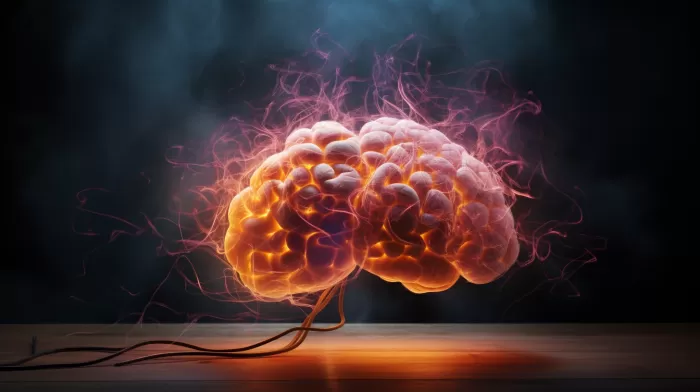New research into smoking has shed some light on what exactly makes it so difficult for some smokers to kick the habit, and in turn provides an important piece of advice for those trying to quit. Researchers at the University of Copenhagen have found that smoking initially increases brain activity, which may be the habit-forming stimulus that hooks many smokers. But as smokers continue to puff the cancer sticks, tissue in the brain quickly adapts to the stimuli and that initial “brain surge” disappears.
The Dementia-Like Effects of Quitting Smoking
Unfortunately, by the time that happens, most smokers are entrenched in the habit. And when they stop smoking, the brain’s oxygen uptake and blood flow decrease by 17 percent immediately. Brain scans reveal regular smokers can experience something akin to a dementia-like condition. This unpleasant experience is likely why so many find it difficult to break the smoking habit.
The researchers concluded that smokers seemingly need to continue smoking just to keep their brain functioning normally. But that doesn’t mean it’s impossible to put an end to this extremely unhealthy habit. With time smokers can become less dependent on smoking, but researchers cannot say exactly how long it may take for a former smoker’s brain to regain its normal energy consumption and blood flow.
Gradual Quitting as a Potential Solution
This finding suggests that a gradual approach to quitting smoking may lessen the worst withdrawal symptoms and allow more smokers to successfully kick the habit. Gradual quitting entails slowly reducing the number of cigarettes smoked each day until complete cessation is achieved. This method is thought to be less jarring to the body and mind than going cold turkey, which often leads to relapse due to its high level of discomfort.
Alternatives and Aids to Help Quit Smoking
For those aiming to quit smoking, there are numerous aids and alternatives available to help combat cravings and minimize withdrawal symptoms. Some of these options include nicotine replacement therapy (NRT), medications, and behavioral therapy.
- Nicotine Replacement Therapy (NRT): Available in gum, patches, nasal sprays, and lozenges, NRT works by providing the body with nicotine without the other harmful substances present in cigarettes. This method helps to satisfy cravings while gradually lowering the victim’s dependency on nicotine.
-
Medications: Smoking cessation medications, such as Zyban and Chantix, work by altering the brain’s chemistry to reduce the pleasure experienced from smoking. Though these medications do have potential side effects, they have been shown to be effective in helping some smokers quit for good.
-
Behavioral Therapy: This method involves meeting with a trained smoking cessation counselor who helps the individual develop coping strategies and techniques for dealing with cravings and triggers. Combining behavioral therapy with medication or NRT is often very effective.
Importance of Support in Quitting Smoking
Research has shown that having a support system in place is crucial to successfully quitting smoking. Whether it’s friends, family, a support group, or a professional counselor, having someone to turn to when cravings hit and difficult moments arise can make the journey to being smoke-free much more achievable.
Additionally, setting realistic goals and recognizing that quitting smoking is a process rather than an overnight success can help alleviate the pressure one might feel when tackling this life-changing decision. It’s important to be patient with oneself and to keep in mind that slip-ups are normal – what matters most is the overall commitment to a healthier lifestyle.
Final Thoughts on Quitting Smoking
While the idea of quitting smoking can feel overwhelming, it is important to remember that countless individuals have successfully quit and regained control of their health. It may take time, perseverance, and multiple attempts, but with the right tools and support, it is entirely possible to free oneself from the clutches of smoking addiction.
Remember, quitting smoking is not just about ending the physical act of smoking; it is also about the mental commitment to living a healthier lifestyle. By focusing on overall well-being, finding effective quitting strategies, and leaning on a network of support, more smokers can break free from their addiction and begin to experience the many benefits of being smoke-free.
While the researchers at the University of Copenhagen don’t have an exact timeframe for when brain function will return to normal, it is without a doubt that quitting smoking is a beneficial decision for one’s health, both mentally and physically. Don’t be discouraged, and remember that whatever the challenges one faces in the quitting process, they pale in comparison to the life-long benefits of becoming smoke-free.



